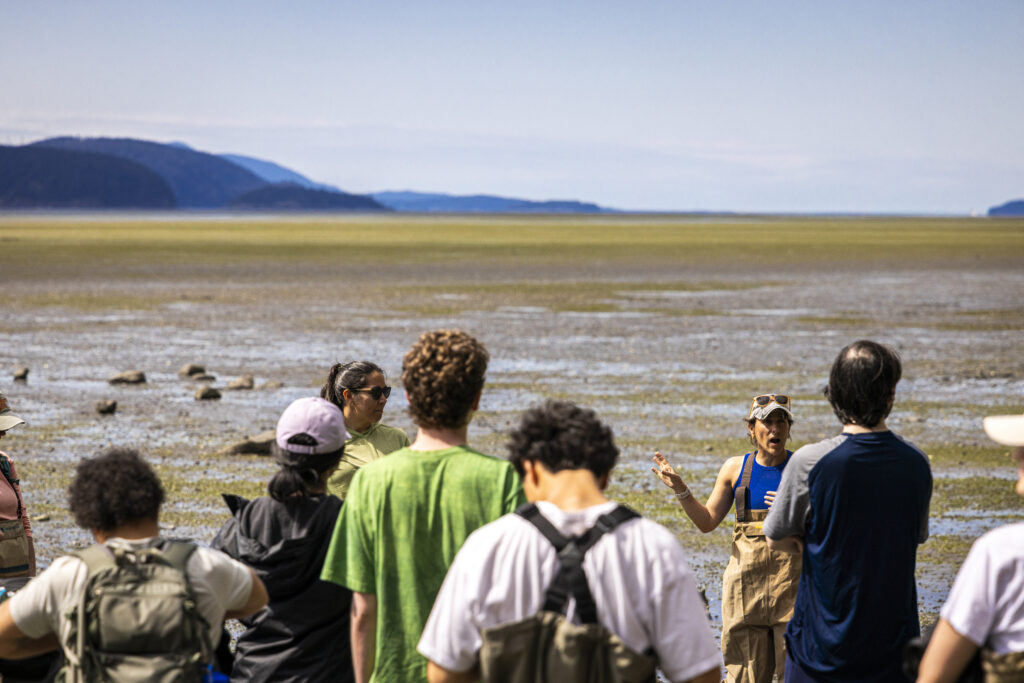Classes offered at UW

FISH 312: Aquatic Ecology
(Spring quarter at UW)
This class covers the basic principles of ecology, with a focus on the ecological processes that produce observable patterns in diversity and abundance in aquatic ecosystems. We will proceed from lower levels of biological organization to higher levels: from physiology and behavior to populations, communities, and ecosystems. Although the objective of the course is to teach students fundamental ecological principles that apply across all ecosystems, we will focus on the themes most relevant to marine and aquatic ecosystems.

FISH 429: Coastal Restoration Ecology (Winter quarter at UW)
This course provides an introduction to restoration ecology and the practice of ecological restoration, with a specialized focus on coastal and marine ecosystems.
Throughout the quarter, we will examine foundational ecological theories that underpin restoration science and discuss how these frameworks are applied in real-world contexts. Emphasis will be placed on the ecological dynamics, degradation drivers, and restoration strategies associated with some of the planet’s most vital and vulnerable ecosystems—including salt marshes, mangroves, seagrass meadows, oyster reefs, and coral reefs.
Students will engage with current scientific literature, explore case studies from around the globe, and gain insight into both traditional and cutting-edge restoration techniques.
Teaching Philosophy
My unconventional background in theater arts and outdoor education have deeply influenced my teaching and mentorship philosophy. Before becoming a scientist, I spent most of my adolescence and undergraduate years studying to be a performer and honing the skill of keeping an audience engaged. Subsequently, I worked as a Marine Science Instructor for the Catalina Island Marine Institute in California, where I taught a weeklong marine science curriculum to 5th through 12th graders. Starting every week with a new classroom of students gave me the unique opportunity to innovate and test new teaching techniques, reflect on what worked and did not work for different groups, and ultimately find a teaching philosophy that I continue to refine. Below, I expand on my philosophy and experience with teaching and mentorship through two focal areas: 1) teaching is performing; and 2) project-based learning.
1. Teaching is performing
Education often begins in the classroom, and the way information is communicated can be just as important as the information itself. At a basic level, my performance background instilled a comfort with public speaking; I was taught from an early age to project my voice, to convey information with more than just words, and perhaps most importantly, to read a crowd and assess whether they are following me. When developing lectures, I pay great attention to sequencing my slides so that the information follows a logical storyline that builds in complexity. I use multimedia to keep the material engaging, encourage interaction from the students to test their learning, and make sure to repeat important concepts multiple times. The best teachers I have had always tied their lectures to current events or new research advances, and similarly, I try to integrate relevant and timely information and research into my lectures to make the material more approachable.
2. Project-based learning
Formal and informal lectures are important for communicating basic information and concepts, but I firmly believe that hands-on activities should be used to reinforce classroom learning. I am a strong proponent of project-based learning, which is a student-centered pedagogy wherein students gain a deeper understanding of subject material by participating in challenging real-world projects in groups.
My classes have a heavy emphasis on independent student projects, where students ideally have the opportunity to pursue their own research questions. The process of independently formulating sophisticated research questions based on observations and topics covered in class, and then conducting independent research or analyses can demystify the scientific process for many students and give them control over their learning. I strongly believe in incorporating opportunities for autonomy into my classes, so that students can have some freedom to direct their learning toward what interests them most.